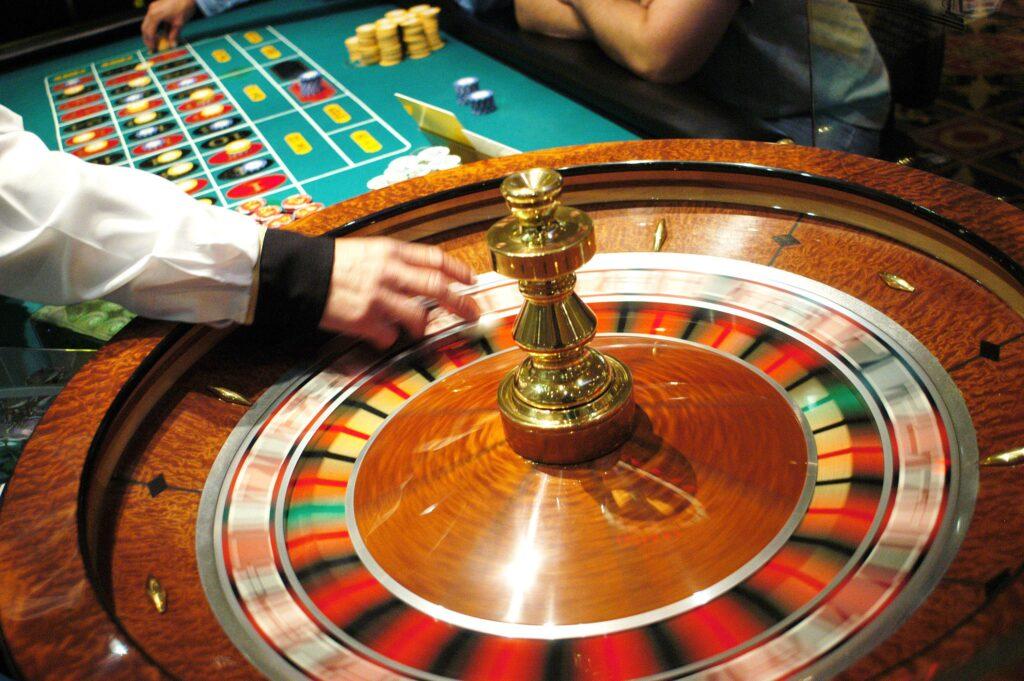The world of poker continues to evolve and online poker and live poker are two of the most popular ways to play. These two modes have their own unique appeal, attracting different types of players. In this detailed article, we will look at the key differences between online poker and live poker, shedding light on the advantages and disadvantages of both. We aim to equip players with the knowledge to enable them to choose the play style that best suits them.

Online Poker Pros
1. Convenience
Players can access online poker from the comfort of their homes. With an Internet connection and a device such as a smartphone or computer, you can play anytime, anywhere.
2. Low rates
Online platforms often offer lower stakes, allowing you to play with minimal investment. It is ideal for beginners or those who prefer to play with less risk.
3. Faster game
Gameplay in online poker is generally faster. There is no physical shuffling or handing resulting in more hands played per hour.
4. Expanded game selection
Online poker platforms usually host a variety of poker games, giving more choices and allowing players to find their preferred game type.
Online poker: cons
1. Lack of physical interaction
Online poker lacks the social interaction that many live players enjoy. The lack of body language and facial expressions can change the dynamics of the game.
2. Potential security risks
While many platforms are secure, some players may be put off by the risk of being scammed or hacked.
3. Difficulty for beginners
The fast pace and lack of physical cues can make online poker more challenging for beginners.
Live Poker Pros
1. Social experience
Live poker provides a rich social experience, allowing players to interact, read body language and enjoy the atmosphere of a real casino.
2. Slow pace
The more deliberate pace of live poker may be more enjoyable and less stressful for some players.
3. More strategic depth
The ability to directly observe opponents often adds depth to strategy, making live poker a favorite among experienced players.
Live poker: cons
1. Higher costs
Playing at a casino usually involves higher stakes and additional costs such as travel, food and lodging.
2. Limited selection of games
Casinos may have fewer game options compared to online platforms, limiting your choices.
3. Availability
Depending on your location, finding the nearest casino offering live poker can be a challenge.
Choosing the Right Platform
Finding the right platform for your poker games, whether online or live, is an important decision. Here we give an idea of what to consider for both:
Online Poker Platforms Key Points
1. Safety and reliability
Choose platforms that are licensed and regulated. Read reviews and look for recommendations from other players to make sure the site is legit.
2. Variety of games
Look for platforms that offer a wide variety of games and tournaments to suit your play style and preferences.
3. User Experience
The design, functionality and customer support of the platform are essential. User-friendly interface can enhance your gaming experience.
4. Bonuses and promotions
Many online platforms offer promotions such as welcome bonuses. Compare these offers to find the best value for your money.
Live Poker Sites Key Points
1. Location
Consider the proximity of the casino or poker room to your location. Travel time and costs are decisive factors.
2. Atmosphere and environment
Visit different locations to experience the atmosphere and decide what suits your playstyle and comfort level.
3. Game offers
Make sure the place offers the games and bets you prefer.
4. Professionalism and etiquette
Look for places with professional staff and a good reputation for fair play and proper etiquette.
Skill Improvement: Online or Live
Both online and live poker offer opportunities to develop skills. Here’s how you can grow in each environment:
Online poker
- Use online tutorials and resources.
- Join forums and communities for tips and strategies.
- Practice playing free or low stakes games to develop your skills.
Live Poker
- Attend live seminars and training.
- Find mentors or experienced players to help you.
- Participate in local tournaments to gain experience.
Adapting strategies: online for life and vice versa
The transition between online poker and live poker requires you to adapt your strategies. Here are some tips:
- Online to live
- Focus on reading physical cues and body language.
- Adjust to the slower pace of live games.
- Be mindful of casino etiquette.
live on the internet
- Learn to make decisions without physical cues.Adapting to the faster pace and multi-table possibilities.
- Use online tools and analytics to analyze your game.

Final Thoughts
The poker journey, whether online or live, is filled with excitement, challenges and rewards. Understanding the unique aspects of both can help you make informed decisions, improve your skills, and have more fun playing the game.
By taking into account the differences and similarities between online poker and live poker, you will be able to explore new aspects of the game, find your niche and get the most out of it.
